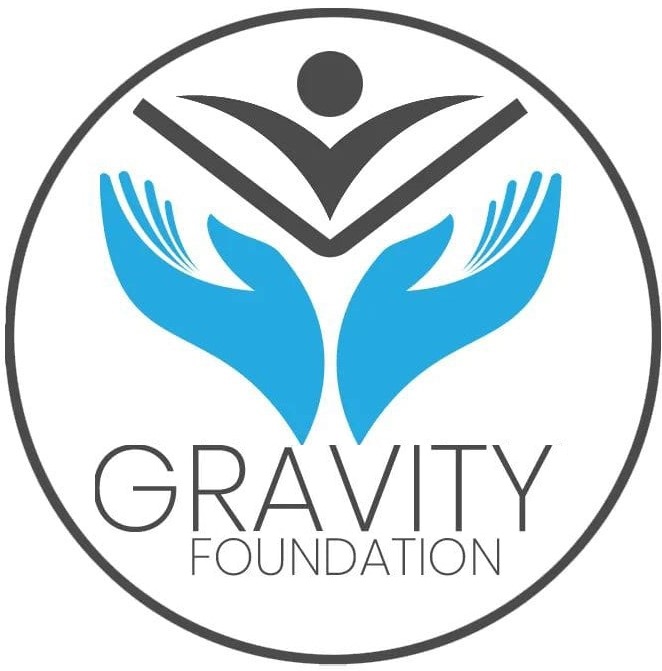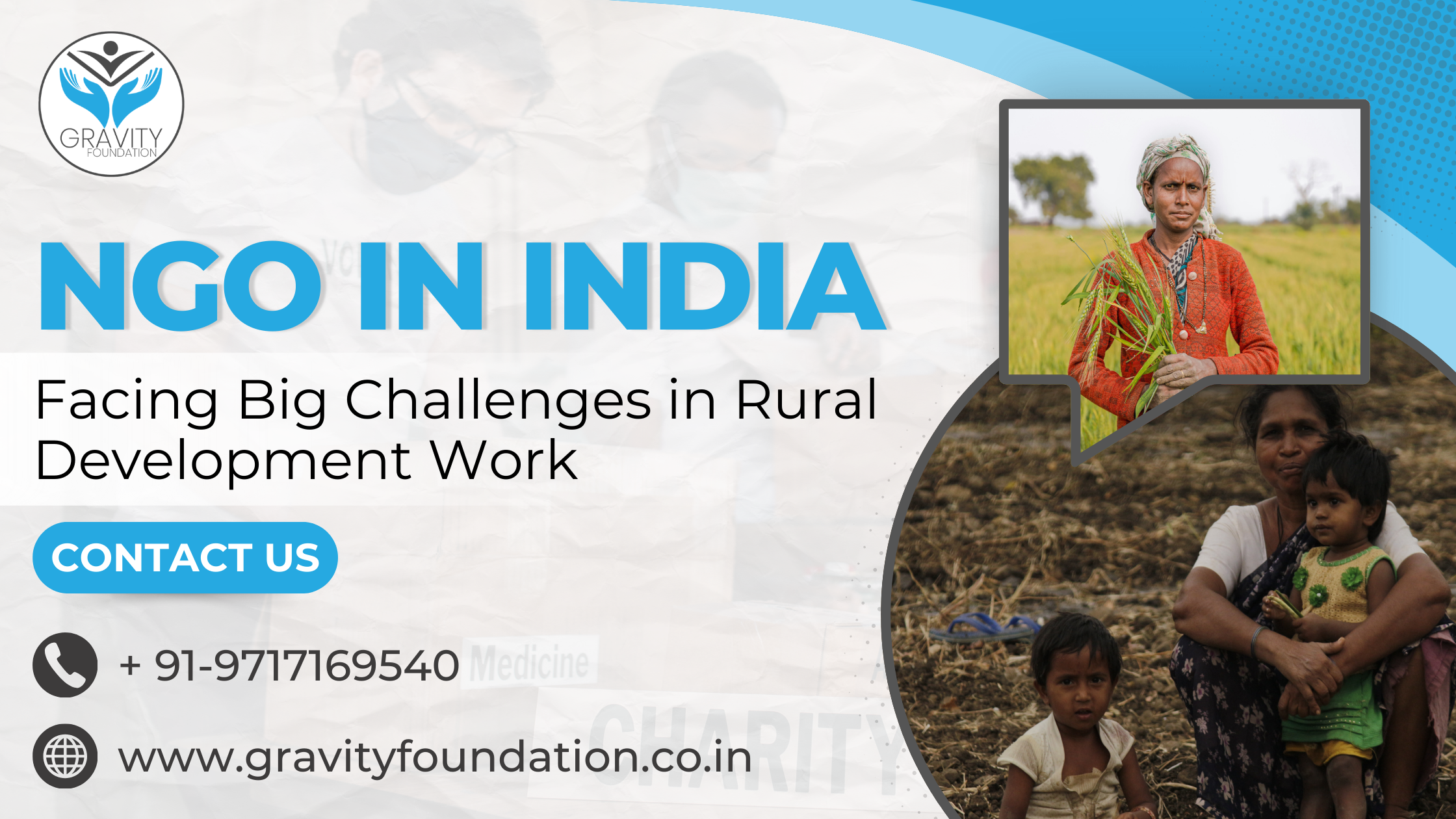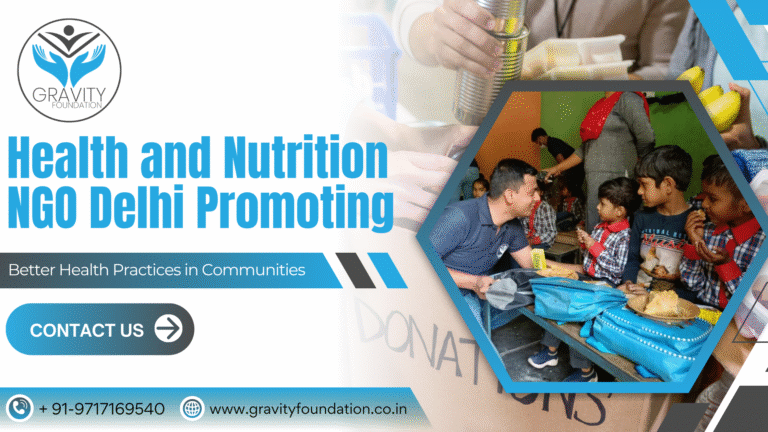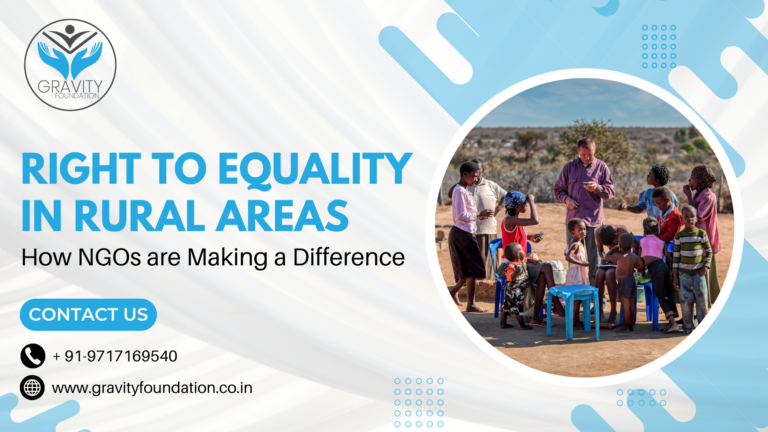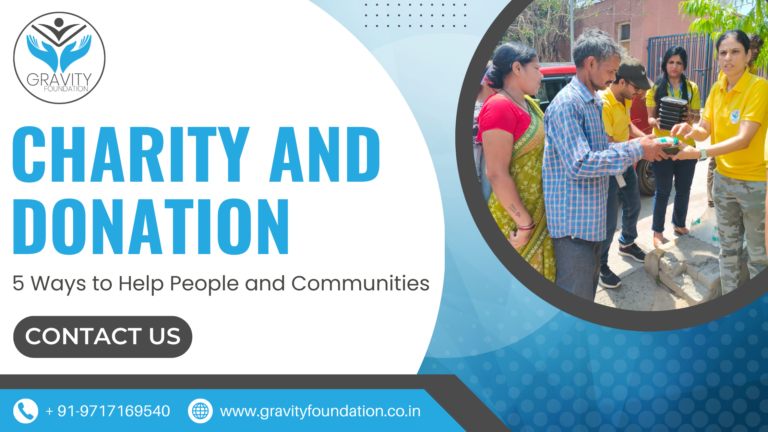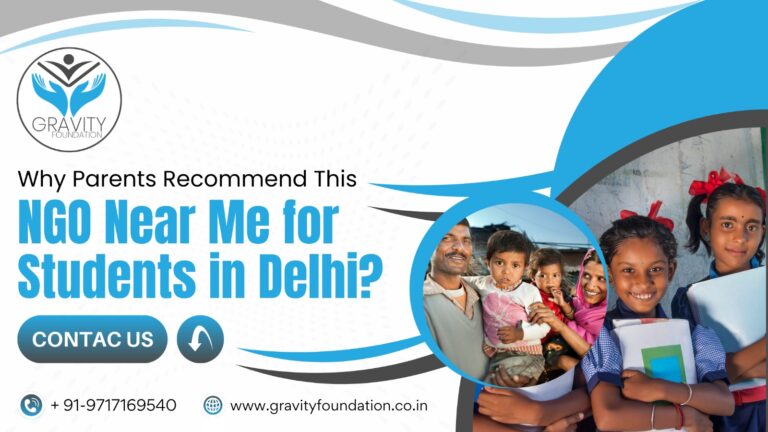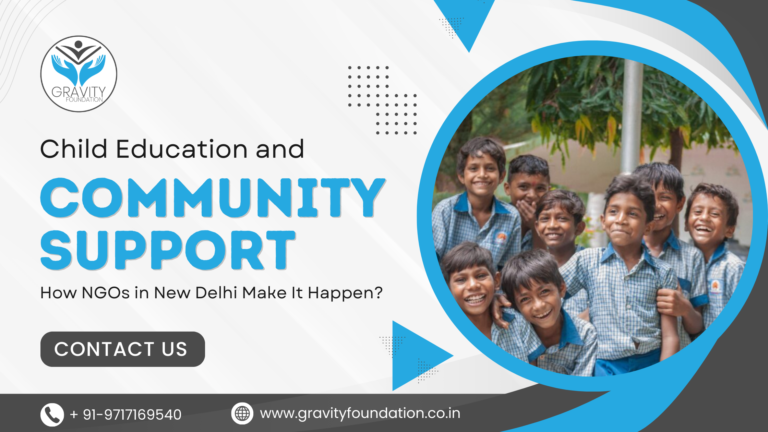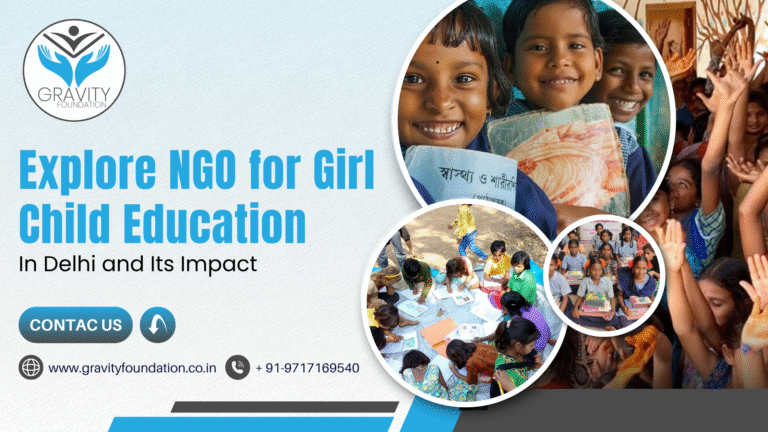NGO in India: Facing Big Challenges in Rural Development Work
In India, many people in villages still face problems like poor education, bad health, and no good jobs. The government tries to help, but the work of NGO in India is also very important. These NGOs in India help by giving people what they need, like Education, healthcare, and job skills. Gravity Foundation is one such NGO that works hard to help people in rural areas. But working in these areas is not easy. There are many problems like not having enough support, no proper roads, and some people not accepting new ideas. So, NGOs in India keep working, even though they face many difficulties.
Key Features of Sustainability NGOs in India
Sustainable NGOs are very important for helping rural areas. They focus on making changes that last a long time, instead of giving quick help. Some key features of these NGOs are:
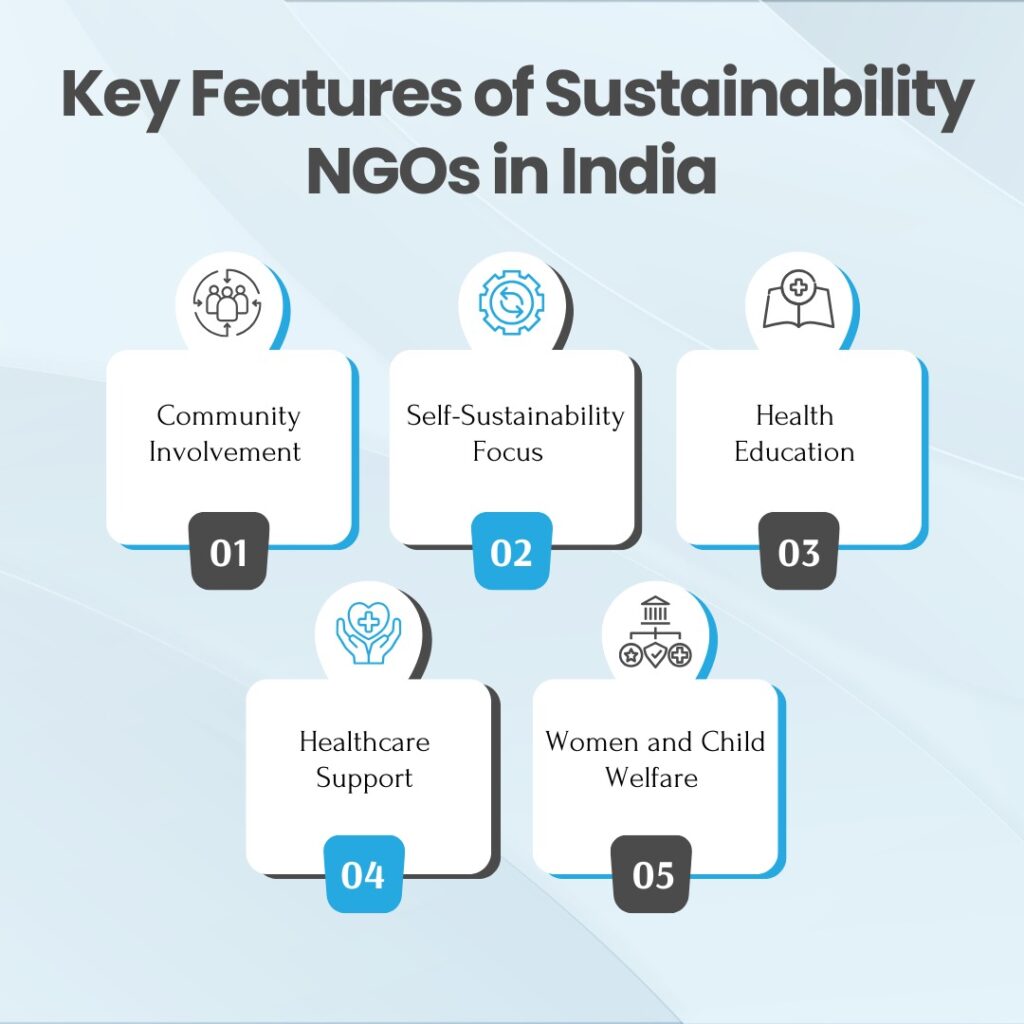
- Community Involvement – Sustainable NGOs, like the Gravity Foundation, make sure local people are involved in their work. But if local people help, the programs work better. NGO in India know that community participation is key to success.
- Self-Sustainability Focus – Instead of just giving help, NGO in India teach people how to help themselves. Gravity Foundation helps people learn new skills so they can earn money on their own.
- Health Education – Many people in villages don’t know about basic health and hygiene. Health Education is important, and NGOs like the Gravity Foundation help by teaching people how to stay healthy.
- Healthcare Support – Many rural areas don’t have enough hospitals or clinics. NGOs in India like Gravity Foundation provide medical help through health camps and health information programs.
- Women and Child Welfare – Women and children often face many problems. Gravity Foundation works to help women gain skills and help children get an education. This helps break the cycle of poverty.
These features are important for NGOs in India to help people in rural areas grow and stay strong.
Major Hurdles Faced in Rural Development Work
NGOs in India face many problems when working in rural areas. But even though it’s difficult, these challenges can be solved. Some of the main hurdles are:
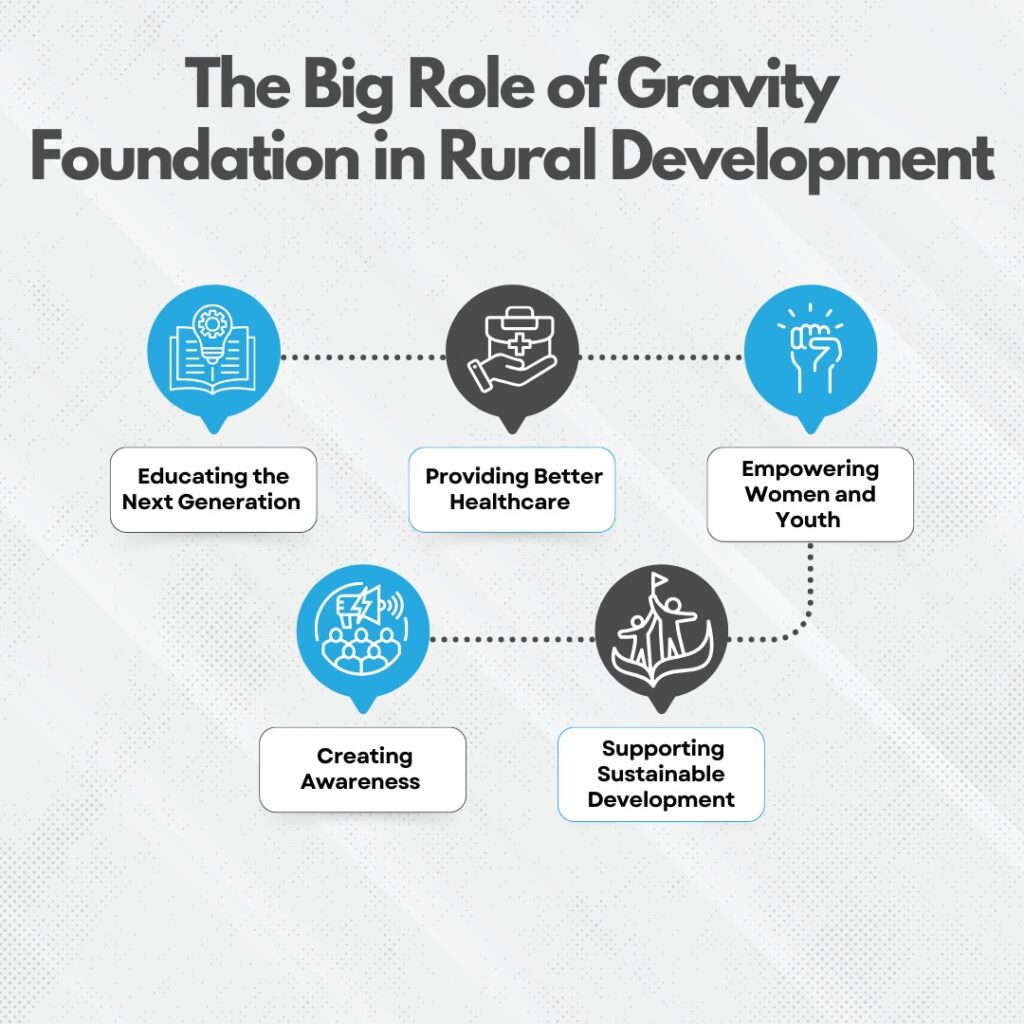
- Lack of Funding – Charity and Donation are the main ways NGO in India get money to help people. But it’s hard to get enough money. Without enough donation, it’s difficult for NGOs to keep their programs running.
- Poor Infrastructure – Many rural areas do not have roads, electricity, or even the internet. So, it’s hard for NGO in India to do their work. If there are no good roads, it’s hard to bring help to people who need it.
- Resistance to Change – Some people in rural areas are not open to new ideas. But NGOs in India work hard to build trust with the people, so they can accept new ways of doing things.
- Limited Government Support – The government has some help for NGOs, but the process is slow. There are many rules and long delays, which make it hard for NGOs in India to get the help they need.
- Shortage of Skilled Workers – There are not enough teachers, doctors, or social workers in rural areas. NGOs in India struggle to find skilled workers who are willing to help in these areas.
- Climate and Environmental Challenges – Natural disasters like floods and droughts are common in rural areas. These disasters destroy homes, crops, and all the work NGOs in India have done. But these challenges cannot stop NGOs in India from working.
Even though these are big challenges, NGOs in India keep trying to help.
Some Common Questions from Rural People
People from villages often ask questions about how NGOs in India can help them. Here are some common questions and answers from Gravity Foundation:
How can the Gravity Foundation help my village?
Gravity Foundation helps by providing Health Education, free classes for children, and training for adults. These programs are free and help improve the lives of the people.
Is your support only for children, or do adults also benefit?
Our programs are for both children and adults. We provide free education for children and skills training for adults so they can earn money.
How can I join and benefit from your programs?
You can join by coming to our free events. We hold camps and workshops where people can sign up for our programs.
Do you provide financial help directly?
We don’t just give money. Instead, we teach people skills that help them earn for themselves and become independent.
Can women join your programs?
Yes, we encourage women to join. We have programs that help women learn new skills, start businesses, and become independent.
These answers show that the Gravity Foundation helps rural people in many ways, not just by giving money but by teaching skills and providing education.
The Big Role of Gravity Foundation in Rural Development
Gravity Foundation plays a big role in making rural areas better. Here’s how we help:
- Educating the Next Generation – We offer free education for children so they can learn and grow. Every child in the village should have the chance to go to school.
- Providing Better Healthcare – We set up free health camps in villages and bring medical care to people who need it.
- Empowering Women and Youth – We help women and young people learn skills and find better jobs or start businesses.
- Creating Awareness – We provide Health Education and teach people about government schemes and rights that can improve their lives.
- Supporting Sustainable Development – We promote eco-friendly farming practices and work on clean water projects, so the community can grow in a safe, long-lasting way.
With these efforts, Gravity Foundation helps rural areas get better and stay strong for the future.
Conclusion
NGO in India face many problems when working in rural areas. But these problems can be solved by focusing on a few important things. First, building strong community participation is very important. This means encouraging local people to join in and help with the work. When the community is involved, the programs are more likely to succeed and last longer. People from the village will keep supporting the work, even after the NGO has finished. Another important point is ensuring long-term sustainability. This means helping the community become independent so they don’t always need outside help. By teaching new skills and setting up things that can last, NGOs can make sure their work benefits the village for many years.
